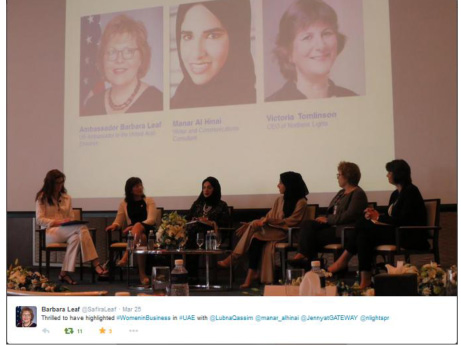9 top tips to facilitating and moderating events
22 April 2015 By Northern Lights

Last night I got the most fantastic email from a client, telling me how all the tips we’d discussed for an event worked in practice! She was on such a high, had such great feedback from the event – and at the event was invited to speak at a very high profile conference. Bingo!
One of the things she was most worried about was how to lead a table discussion on some quite sensitive issues and then what to feedback to the plenary.
So here are the tips that we discussed – and she said they really worked!
- Preparation
The worst thing with any conference or big event is to arrive and discover it is not what you thought. You then spend your time trying to find what table you are on, who else is there, what you have to do, what the format is and so on. Instead you need to be networking, thinking how to make an impact from your speech and facilitation and making the most of the opportunities.
So ask as many questions as you can in advance. If you haven’t been sent this information, and if you possibly can, check the layout of the room or ask for a layout and photo. You may feel pushy doing this, but remember the conference organisers want their event to be a success – the better prepared their speakers and facilitators, then the more successful their event.
These are the 6 questions to ask your conference or event organiser
- Detailed agenda and particularly your own timings
- Guest list
- Your role and what the organisers want from you
- Who is on your table if you are facilitating group discussions; what question or questions will be discussed
- Who are your fellow speakers if you are moderating on stage; fellow facilitators who are leading other table discussions
- The room and layout; the stage layout – lectern, screens, microphones etc
Then check out who is on your table and jot down some notes about each person so you know what angle and ideas they are likely, or could bring, to the discussion. Also check out the other facilitators and think about angles they might make – there may be someone who you know is always controversial and this helps you to feel comfortable if you have researched and thought about them.
- Get ideas from the conference speakers
Most conferences start with one or two speakers before going into group discussions. Jot down a few points that could be relevant to your facilitated discussions later. It always works well to link from a speaker ‘As Lord Smith or Sheikha Lubna said earlier ….” It feels joined up and that everyone is working together and helps makes sense of the whole day.
- What is your personal brand and your message for the event?
You haven’t given up a day or more of your time to attend this event without wanting something in return. Remember to set your own objectives – which could be anything from getting new business to being invited to speak at a global conference.
I talked in this blog about how to create a personal brand. Think through how you want to be seen, and how you can do that from the event.
- Facilitating your table
This was the bit worrying our client the most – how she led discussions on the table and then gave feedback to the room.
The tip I gave her was, it’s not about you. Everyone on that table is there to learn and contribute. Your role is to help that happen. If everyone goes away feeling they contributed and learnt – they will think you are great. So don’t worry about what you are going to say, as much as how you manage the table.
You probably want to introduce the topic or question on your table by referring to the bigger picture of the conference theme, make one or two points from earlier speakers, then a ‘for example’ story to bring the issue to life from your own perspective – and make sure they are around your personal brand and will help achieve your goals.
Then throw open the discussion around the table.
- Manage the loudmouth
In any group of people, there will almost certainly be one person who talks a lot and one or more who will listen and say little. Your role is to manage both these contributions.
Managing the talker can be the hardest – though there are times when we are all grateful for anyone saying anything to get things started! These are my tips
- Put your hands on the table in front of you so you are ready to use your hands when you need them – they are very good at managing people!
- As the ‘talker’ pauses or comes to the end of a point, put your hand in their direction and come in immediately (yes, you may need to interrupt but others on your table will be grateful!) and say ‘oh that is such a good point, do others agree/have similar experiences?’
That way, you flatter the talker so they don’t feel cut off and you now have a chance to bring in people who have not said anything. Again, use your hand in an open gesture towards someone who hasn’t spoken yet.
Make sure you thank people for their thoughts and pick up on points that you can add to.
- Make notes
Jot down some key points that are being made. Look for things that support your brand and underline them. Have you got a personal story that relates to them? Put that down too if something comes to mind.
- Add insights
Bring in some of your own insights and stories to the discussion, ones that add value and contribute to your personal brand and objectives.
- Manage time
Keep an eye on the time, and make sure everyone is having a chance to contribute. Three or four minutes before your time is up
- Say thank you for great contributions
- Mention you have just a few minutes left, does anyone have anything they really want to say and haven’t had a chance – just ten seconds to say it now
- Then follow on ‘I’ve made a note of the key points from the discussion and want to feedback around ….. Is everyone happy?’
You want to ensure everyone feels they are a part of what you are feeding back. Occasionally you might have someone who violently disagrees with everyone else, and it is important to reflect that in your feedback and respect their views. Every view is valid.
- Feedback to the room
When you feedback, remember you are the leader and this is a chance to position yourself to the conference. You obviously can’t skew the discussion or be flashy as you do this, but you could add an anecdote to explain a point (briefly), or say that one of the comments really resonated with you because….
Start it off with something like ‘there were some really interesting suggestions on our table …’ and do reflect the wide discussion and if there were differing views.
And of course these principles all apply to moderating on stage with a panel – make sure everyone has a chance to contribute; link between the points being made and make everyone on stage looks good. That reflects well on you.
Any key tips that I have missed? Please do share your stories and what you think really works.



